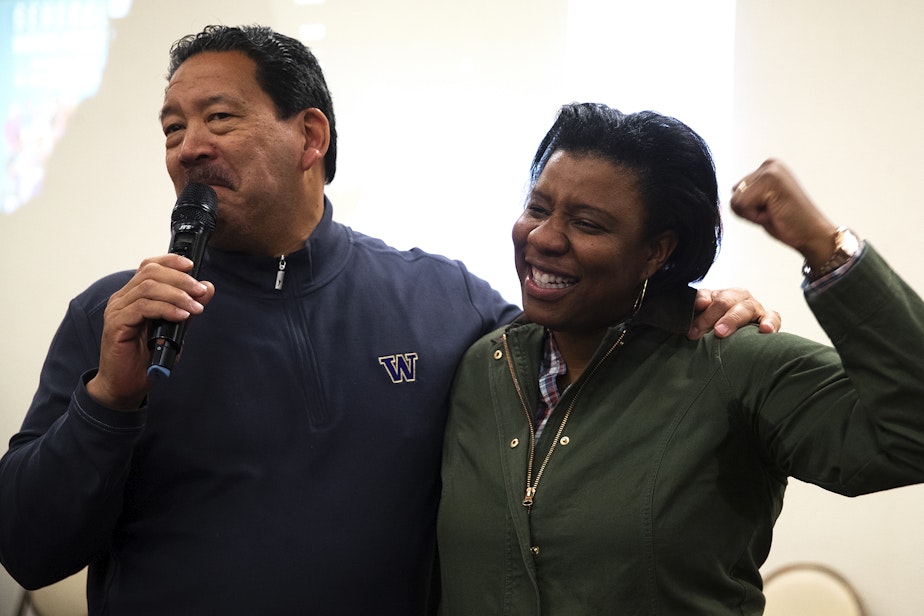Why Mayor Bruce Harrell might be the biggest winner of Seattle's 2023 election

If there was a big-picture winner of Seattle’s 2023 general election, it’s arguably Seattle Mayor Bruce Harrell.
All five city council candidates Harrell endorsed were elected, or re-elected in the case of Dan Strauss. And the city’s Housing Levy passed with a whopping 69% of the vote.
"I think that the city as an entity is heading in the right direction," Harrell told KUOW's Soundside. "I'm very prideful of ... what the city did."
Harrell said that once the new councilmembers begin in January, he plans to look at how to advance an agenda on policy including transportation, public safety, and housing.
"This new council will have focused on the objective, not the performative — you know, long-winded speeches of who's right and who's wrong."
But there could still be disagreements to come between the Mayor and new councilmembers. Several newly elected councilmembers said on the campaign trail that they would consider cuts to city services or staffing levels to help balance Seattle's budget, which faces a gap of more than $200 million.
Sponsored
Harrell said that it's too early to be looking for cuts right now.
"My guess would be that a lot of them are not privy to all of the issues," he noted. "Quite frankly, when you're running for office in a $7 billion budget, I don't know how much information they have is accurate."
Harrell did not comment on if he would consider raising the JumpStart tax, which is a payroll expense tax.
He will also have to contend with ongoing public safety issues in the city.
As of Thursday, Seattle is one homicide away from breaking its record for the highest number of homicides in a year. That record was made back in 1994, when the city's population was much smaller; the new record wouldn't be per capita.
Sponsored
Harrell said that some of what's needed regarding public safety is out of his hands — specifically state laws that pre-empt cities from getting into gun regulation. But Harrell said he is committed to hiring more police officers and looking at other methods for preventing crime and violence, such as activating parts of the downtown corridor.
Harrell also emphasized his support for acoustic gunshot locator technology. He allocated $1.8 million in his 2024 budget to get a pilot program going — along with some other surveillance technology like license plate readers.
This week, the city council advanced that plan.
Not everyone is supportive of this plan. The ACLU says the technology is problematic and questions its operational effectiveness.
A report from Chicago's Inspector General on ShotSpotter — one brand providing this technology — said that it resulted in very few firearms recovered or evidence of gun-related crime. It also found that the technology changes police officers' interactions with people in neighborhoods with a lot of ShotSpotter flags.
Sponsored
"I appreciate the work that the ACLU does," Harrell said. "But I took them head-on in terms of the body camera debate — they were actually opposed to body cameras."
Harrell said communities that are suffering from gunfire want accurate data, which he said could be gathered from acoustic gunshot locator technology.
"It's a pilot. And if this doesn't work, we will fix it."
Success for a pilot would be determined by either the Harrell's innovation and performance group, or another city entity, like the city council or police department, he said.
Harrell also has one more plan for next year: starting his re-election campaign.
Sponsored
"I love this city, and I choose to use all of the energy that I have to improve the city," he said. "And I have to tell you, this new city council — I'm very proud of the caliber of the council members that we attracted."





